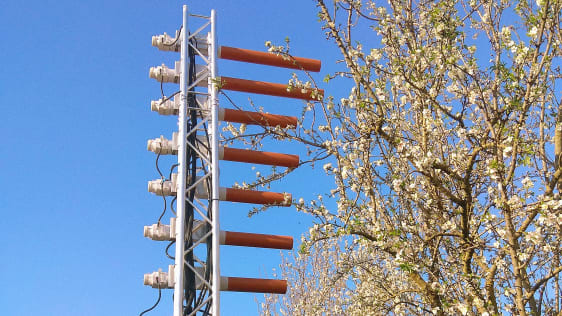Aug . 15, 2024 00:36 Back to list
The significance of pear pollination products in enhancing agricultural productivity and ecosystem health
The Role of Pear Pollination Products
Pear cultivation has been a significant agricultural practice around the world, contributing not only to economic stability but also to biodiversity and ecological balance. A crucial aspect often overlooked in the successful cultivation of pears is pollination. Specifically, the products derived from pear pollination, including pollen and nectar, play vital roles in ensuring healthy crop yields, supporting the ecosystem, and enhancing the flavors and quality of the fruit.
The Importance of Pollination in Pear Cultivation
Pollination is the transfer of pollen from the male parts of a flower (anthers) to the female parts (stigmas) and is essential for the fertilization process in flowering plants. Pear trees are typically not self-pollinating; they require cross-pollination from other varieties to set fruit. This necessitates the presence of different pear cultivars nearby, which enable bees and other pollinators to transfer pollen effectively.
During the bloom period, generally in early spring, pear trees release abundant pollen, which serves as a primary food source for various pollinators, especially bees. In return for this food source, bees facilitate the pollination process, allowing pear trees to produce high-quality fruit. The health of pollination products is directly correlated to the quantity and quality of the fruit harvested, making pollination a critical factor in determining agricultural success.
Nectar and Pollen The Sweet Offerings
Nectar, the sugary fluid secreted by flowers, is an attractive food source for bees and other insects. Pear blossoms produce nectar in substantial quantities, which not only attracts pollinators but also encourages them to stay longer and move between flowers, increasing the likelihood of effective pollination. The presence of nectar-rich flowers enhances the foraging activity of pollinators, resulting in better pollination rates and, consequently, improved fruit set.
the role of pear pollination products

In addition to nectar, the pollen produced by pear blossoms is rich in proteins and essential nutrients, making it an excellent resource for bees, especially during the spring when other food sources might be scarce. This dual offering of nectar and pollen creates a symbiotic relationship between pear trees and pollinators. As bees collect pollen, they unwittingly assist in the transfer of genetic material, which leads to better fruit development and resistance to diseases.
Economic and Ecological Implications
The role of pear pollination products extends beyond mere fruit production. Economically, the viability of the pear industry hinges on effective pollination. High fruit set translates to increased yields, which benefit farmers, local economies, and the food supply chain. The economic importance is further emphasized by the demand for high-quality, flavorful pears that consumers favor, which can be attributed directly to successful pollination.
Ecologically, the health of pollinator populations is critical. Pear orchards provide habitats and food sources for various insect species, contributing to biodiversity. Protecting these pollinators ensures the sustainability of the agricultural system and promotes ecological balance. Moreover, pollination products facilitate the fruit's flavor and quality, which is vital for consumer acceptance and market value.
Conclusion
In conclusion, the role of pear pollination products, including pollen and nectar, is integral to the successful cultivation of pears. Pollination not only enhances fruit yield and quality but also supports the economy and ecological health. As awareness grows regarding the importance of pollinators in agriculture, safeguarding these natural allies becomes paramount. Emphasizing sustainable practices in pear cultivation will ensure that these delicious fruits continue to thrive for generations to come, benefiting both people and the planet.
-
Artificial Pollination Solutions for All Plant Pollen Types
NewsJul.29,2025
-
Premium Plant Pollen for Pure Pollination & Pollen Block Solutions
NewsJul.29,2025
-
Artificial Pollination Solutions for Efficient Crop Yields
NewsJul.28,2025
-
Premium Cherry Pollen for Pure Pollination & Different Types of Pollen
NewsJul.28,2025
-
Eco-friendly Fruit Paper Bags with Pollen Block Technology
NewsJul.26,2025
-
Premium Kiwi Pollen for Sale – Fresh Male Kiwi Pollen Supplier
NewsJul.25,2025